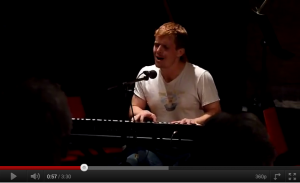Three of us were standing around talking this evening. Terry said she had gone to Paris this summer, and acted as the translator for the people with whom she traveled. Since she obviously knew more French than I did, I asked her if she could come up with a translation of a phrase Carol and I had been struggling with this morning, “French seaside lifestyle.” Would it be “le mode de le vie francais de le bord de la mer”? (Terry said “…au bord de la mer.”) And that got us talking about the French lifestyle.
Terry said that although the Parisians have a reputation of being rude, she liked how people were careful to greet one another: when you go into a shop, you always say, “Bonjour monsieur” or “Bonjour madame” to the shopkeeper, and he or she will greet you in kind. So when you walk around Paris, you may not speak to anyone whom you know all day, but you feel that you have been recognized as a person. This is in contrast to the Bay area, where you often aren’t recognized as a person. Terry said the Bay area can feel very isolating, and we both agreed with her.
Jeremy added that the French find little ways to enjoy life. Families will sit outside and spend two hours eating lunch. There are times and places built in to life that are devoted to simple enjoyment. This is unlike our society, where life can get reduced to work, or to buying and selling, or to being on the go all the time.
All three of us knew that we were idealizing French culture. But even so, U.S. culture can feel very isolating, and in the U.S. we often forget that there’s more to life than just being on the go all the time.

